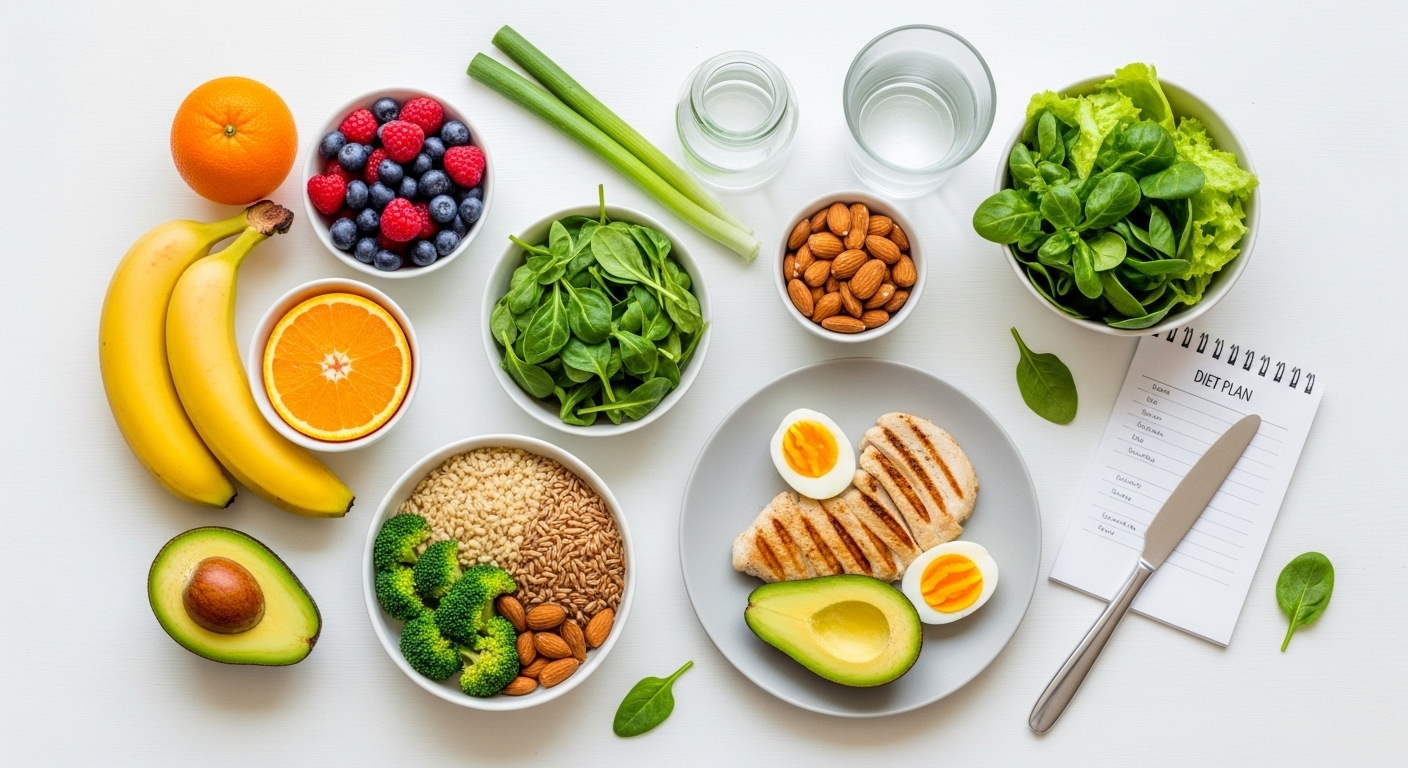We all want to feel good, look good, and stay healthy but in today’s world of fast food, conflicting advice, and endless diet trends, it’s easy to get confused. Should you cut carbs? Count calories? Go vegan? The truth is, eating well doesn’t have to be complicated. In fact, with the right understanding of diet and nutrition, you can make small changes that lead to a healthier, happier life.
In this guide, we’ll break things down in simple terms, bust a few popular myths, and show you how to build a diet that works for you not against you.
Why Diet & Nutrition Matter (More Than You Think)
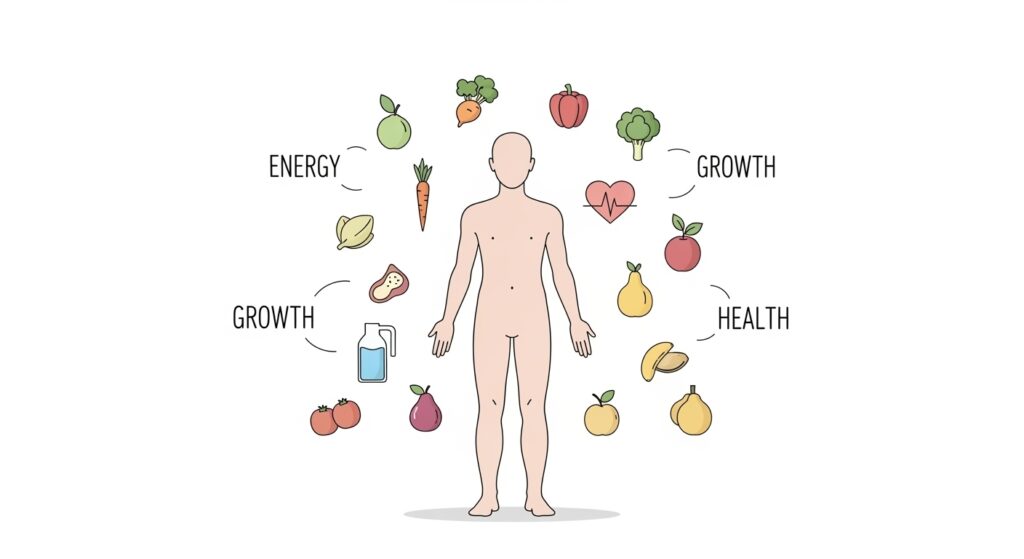
Have you ever noticed how a healthy meal leaves you feeling energized, while junk food can leave you bloated or sluggish? That’s not just in your head. The food you eat is fuel for your body, and it affects everything from your weight to your mood to your immune system.
Your diet is simply what you eat. Nutrition is how your body uses that food. When your diet provides the right nutrients, your body functions better. That means:
- You get sick less often
- You sleep better
- You have more energy
- Your skin and hair look healthier
- Your mind feels clearer and more focused
Healthy eating isn’t about perfection. It’s about balance and consistency.
The Basics of Good Nutrition: What Your Body Actually Needs
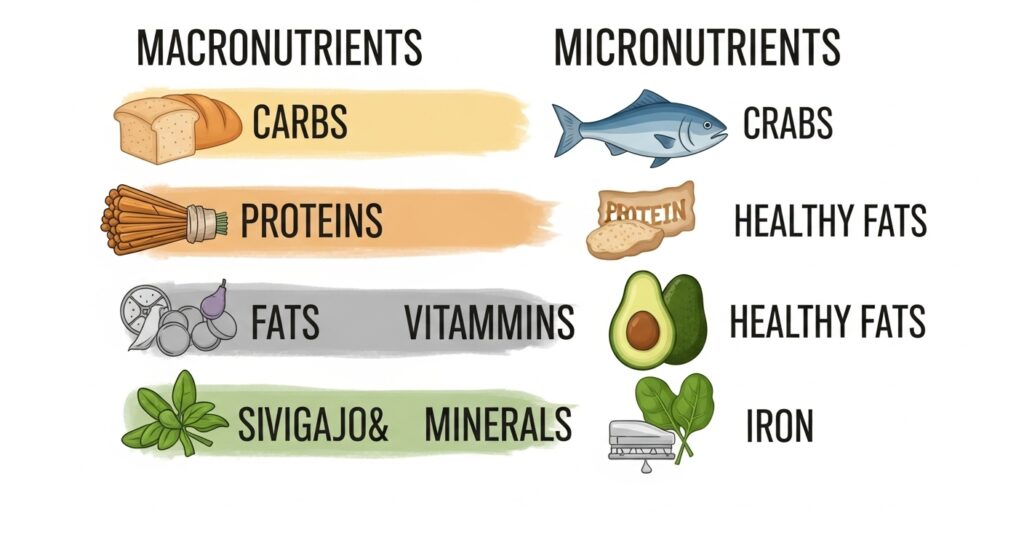
Forget the trendy buzzwords for a minute. Let’s look at what your body really needs every day to stay strong and healthy.
1. Carbohydrates: Your Body’s Main Energy Source
Carbs often get a bad name, but not all carbs are bad. Your body needs them for energy, especially your brain. Instead of cutting them out, choose better carbs like:
- Whole wheat bread
- Brown rice
- Oats
- Fruits and vegetables
Avoid too much sugar or white flour, which give quick energy but lead to crashes.
2. Protein: The Building Block of Life
Protein helps your body grow, repair, and build muscle. Good sources include:
- Eggs, chicken, and fish
- Lentils, chickpeas, and beans
- Milk, yogurt, and cheese
- Tofu and nuts
Try to include some protein in every meal it helps you feel full and supports muscle strength.
3. Healthy Fats: Not All Fats Are Bad
Fats keep your skin soft, your brain sharp, and your hormones balanced. The key is to pick the right kinds:
- Avocados
- Olive oil
- Nuts and seeds
- Fatty fish (like salmon)
Try to limit fried foods and processed snacks with unhealthy trans fats.
4. Water: The Most Important Nutrient of All
Water keeps everything in your body running smoothly. It helps with digestion, energy, skin, and even appetite control. Aim for 8 to 10 glasses per day, more if it’s hot or you’re active.
5. Vitamins & Minerals: Small But Mighty
These nutrients don’t give you calories, but they help your body do everything from fighting infections to producing energy. You’ll find them in:
- Leafy greens
- Fruits like oranges, bananas, and berries
- Dairy
- Fish, meat, and nuts
Each vitamin and mineral has a role. For example, iron carries oxygen in your blood, and calcium strengthens bones.
What a Balanced Diet Really Looks Like
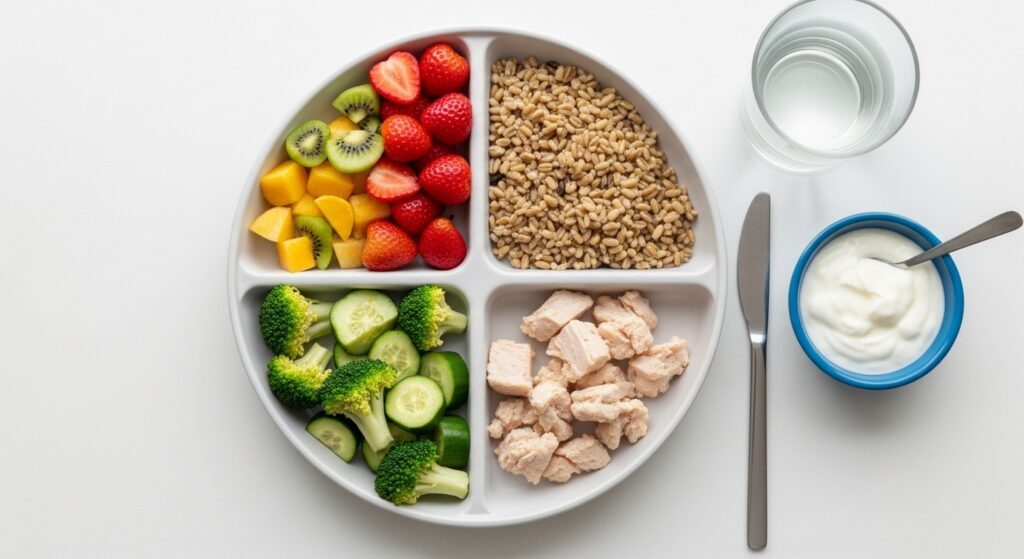
A healthy diet isn’t about starving yourself or avoiding all the food you love. It’s about creating balance.
A simple way to remember this is the “Half-Quarter-Quarter Rule” for your plate:
- Half your plate: vegetables and fruits
- One quarter: whole grains like brown rice or roti
- One quarter: protein like chicken, lentils, or eggs
And yes, you can still have a dessert or your favorite snack just in moderation.
Sample Daily Meal Plan
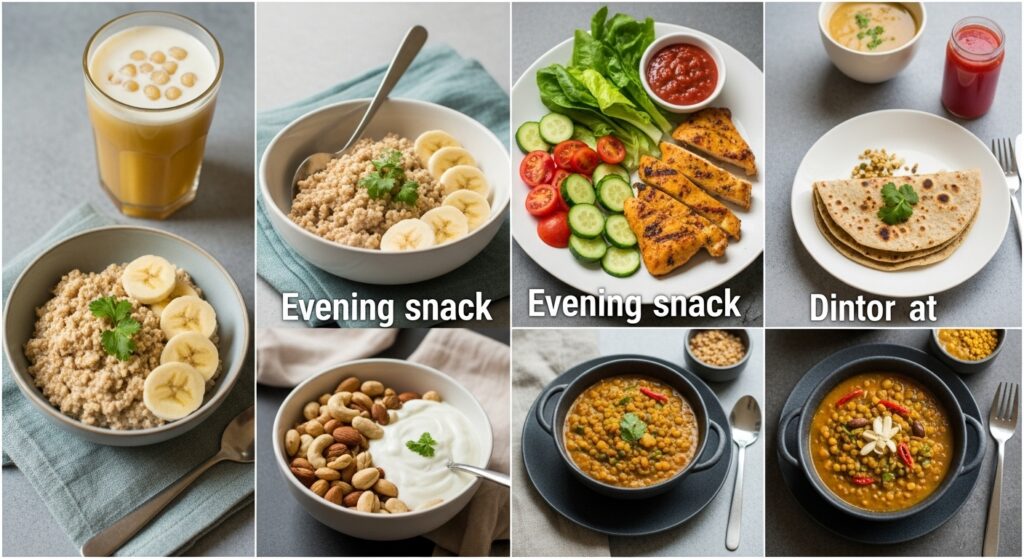
- Breakfast: Oatmeal topped with banana slices and almonds
- Lunch: Grilled chicken with mixed vegetables and brown rice
- Snack: A boiled egg and a handful of nuts
- Dinner: Daal with whole wheat chapati and cucumber salad
Busting Popular Nutrition Myths (No, Carbs Aren’t Evil)
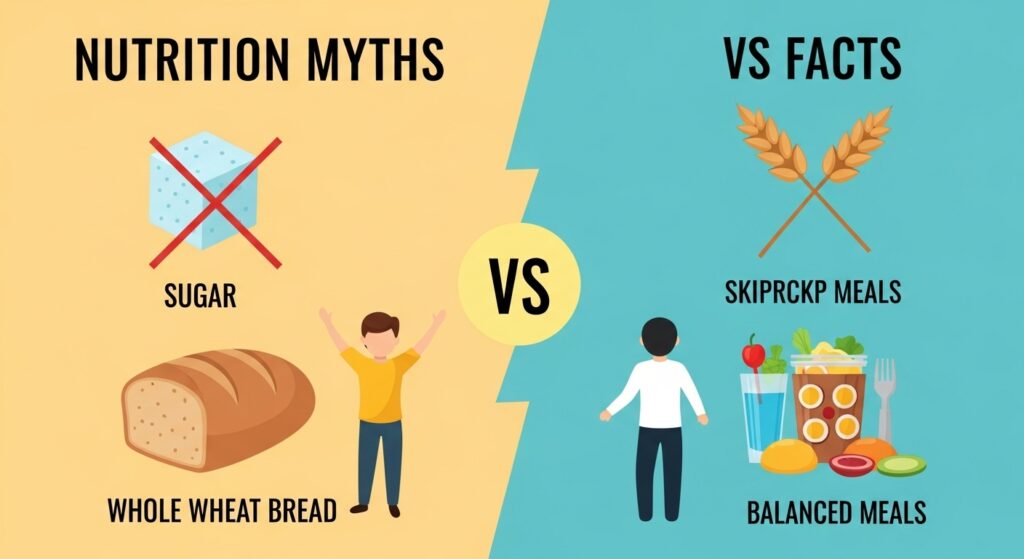
There’s a lot of bad advice out there. Let’s clear up some common misunderstandings:
Myth 1: “Carbs make you fat”
Truth: Only too many calories overall make you gain weight. Whole carbs like fruits, grains, and vegetables are full of fiber and energy.
Myth 2: “Skipping meals helps you lose weight”
Truth: Skipping meals often leads to overeating later and can slow down your metabolism.
Myth 3: “Fat should be avoided at all costs”
Truth: Your body needs fat just choose healthy fats like nuts, seeds, and olive oil.
Make It Personal: Build a Diet That Works for You
Everyone’s body is different. Age, gender, activity level, and even your culture or religion can affect what diet works best for you.
Instead of copying someone else’s meal plan, start by:
- Understanding your calorie needs
- Knowing your body type
- Using helpful tools to guide you
Not sure how many calories your body really needs? Try our free Calorie Calculator to get personalized insights.
Eat for Your Mood: The Diet-Mental Health Connection
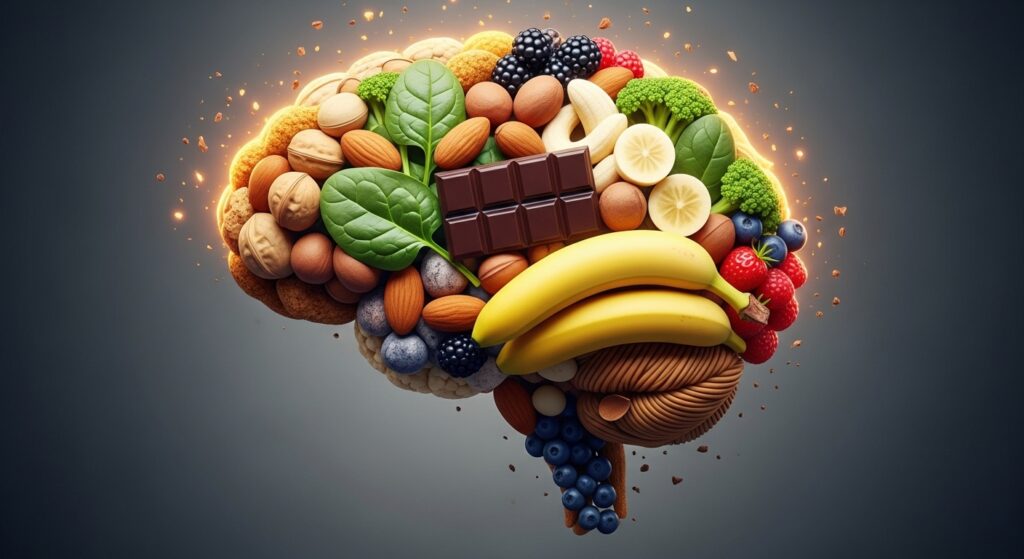
The food you eat doesn’t just affect your body it impacts your mind too.
Certain nutrients like omega-3s, magnesium, and B vitamins help fight depression, anxiety, and brain fog. Here are a few foods that can lift your mood:
- Bananas
- Dark chocolate
- Oats
- Spinach
- Walnuts
Try reducing ultra-processed foods and sugar they’ve been linked to mood swings and fatigue.
10 Simple Tips for Eating Better Every Day
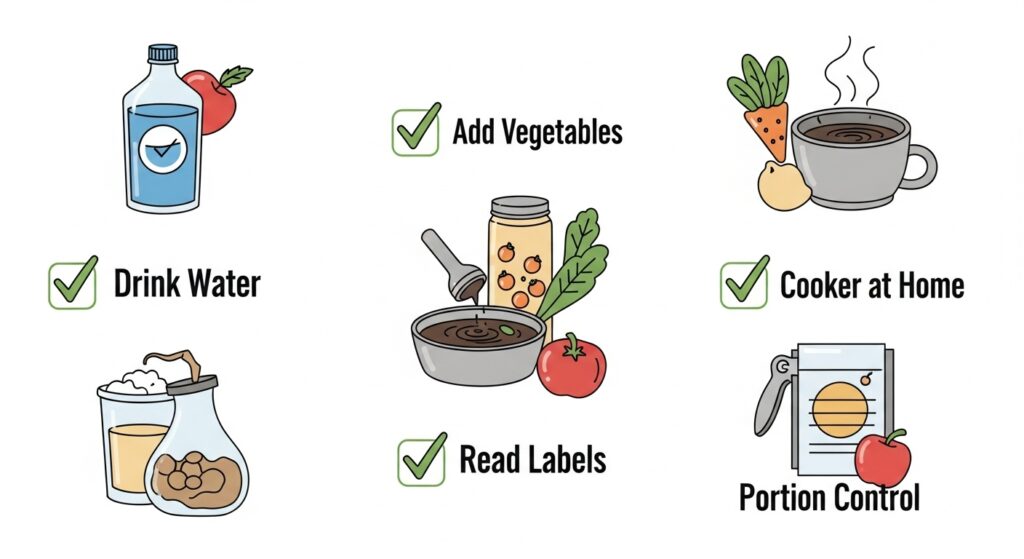
You don’t have to be perfect to eat healthy. Start with these small changes:
- Drink a glass of water before meals
- Add one vegetable to every plate
- Swap white rice with brown rice
- Snack on fruits or nuts instead of chips
- Read food labels for added sugars
- Cook at home more often
- Eat slowly and stop when you’re full
- Choose grilled over fried foods
- Plan your meals for the week
- Don’t be too hard on yourself progress over perfection!
When Should You Talk to a Dietitian?

While basic healthy eating works for most people, some situations call for expert help:
- You have diabetes, PCOS, or thyroid problems
- You’re pregnant or breastfeeding
- You’re underweight or gaining weight unexpectedly
- You have food allergies or digestive issues
A qualified nutritionist can help build a plan that’s safe and effective for your unique needs.
Final Thoughts: Real Food, Real Change
Healthy eating doesn’t mean giving up the foods you love. It means learning what your body needs and feeding it with care and intention.
You don’t need fancy superfoods or a long list of rules. Start simple: drink more water, add more colors to your plate, and eat more whole foods than packaged ones.
Your body will thank you with better energy, stronger immunity, and a longer, happier life.

